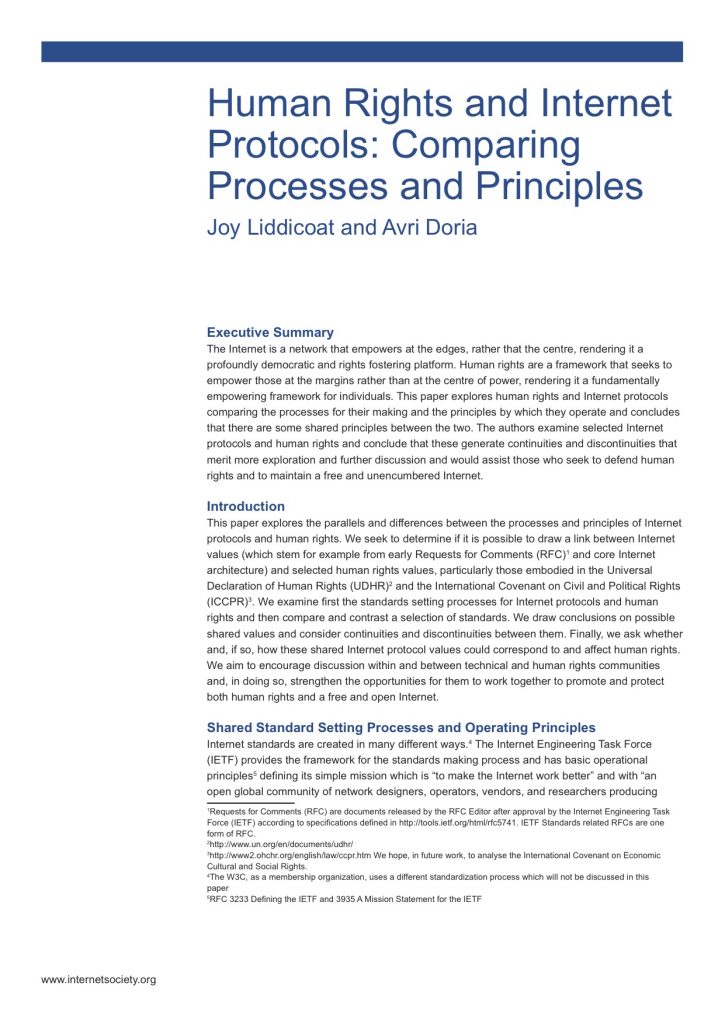Since its inception, the Internet has been a force for innovation and positive development – in our societies, in our politics, and in our economies. It has also been a powerful force to promote and expand human rights around the world. It is our belief that human rights considerations are integrated into the DNA of the Internet
The Internet Society is pleased to publish the first version of a discussion paper that looks specifically at the fundamental processes that make the Internet a success, its standards development processes and other key protocols, and how they are aligned with the processes by which human rights standards are developed. This paper is not intended as a final, authoritative statement. Instead, it is intended to provoke thought and discussion about the continuities and discontinuities between the two processes. It is our hope that this discussion will engage human rights activists, policy makers and the Internet technical community in a dialogue about ways that they can collaborate. It is our belief that human rights considerations are part of the DNA of the Internet and that a dialogue between these communities will be beneficial to uphold a rights-fostering Internet.
Send Your Feedback
To support this dialogue, the Internet Society is issuing an invitation to everyone concerned with human rights and Internet standards/protocols development processes to discuss the concepts raised in the paper. Your comments and discussion points will be taken into account in developing a revised version of the paper, which will be used as the basis for further discussions and as a basis for workshops in 2013.
Please send your feedback and thoughts on the paper directly to seidler [at] isoc.org
The Internet Society is committed to the world-wide drive to enhance human rights. We believe the Internet is a key technological support in people’s efforts to claim those rights wherever they live. We encourage everyone to contribute to the discussion of how to ensure that a respect for human rights is built-in to the fabric of Internet standards and how we work together.
